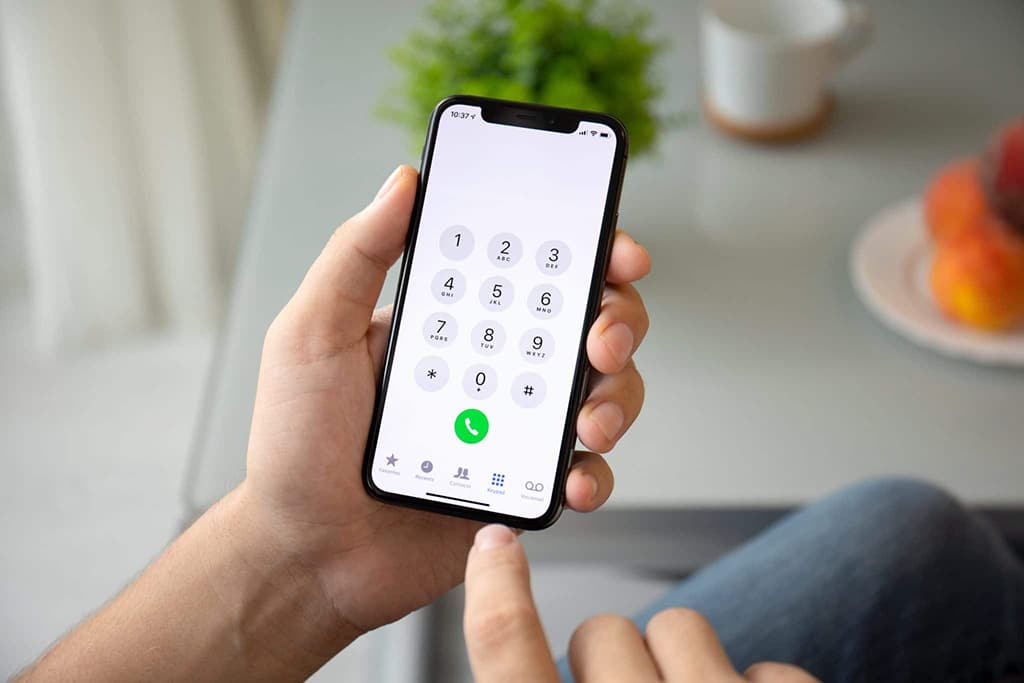Intercepting someone‘s text messages without having direct access to their phone may seem appealing to some seeking information for various purposes. However, this practice involves substantial legal and ethical risks that must be carefully weighed. This comprehensive guide examines the technical feasibility, legal restrictions, and ethical concerns surrounding covert text interception.
An Overview of Intercepting Texts in 2024
Advances in spyware, remote access tools, and telecom network exploits have opened up alarming possibilities for those looking to surreptitiously monitor text communications. However, just because something may be technically possible does not mean it is legal or ethical to do. This article delves into the realities of attempting to covertly intercept texts in 2024 from both a tech and legal perspective, equipping readers with knowledge to make informed decisions.
Here is an outline of what we will cover:
- Technical methods that could enable unauthorized text interception and how they work
- Relevant laws prohibiting unauthorized interception of electronic communications
- Law enforcement policies on lawful intercept procedures
- Court cases involving illegal text interception and outcomes
- Requirements for consent from senders/recipients
- Ethical perspectives on secretively invading someone‘s private conversations
- Expert commentary on the legal and ethical pitfalls
- Practical measures to help safeguard your texts from potential interception
Let‘s dive in to unpack the facts,privacy risks, and moral implications of attempting to access someone‘s texts without their permission. This knowledge can empower you to protect your own communications while respecting the rights of those around you as well.
Tech Methods of Intercepting Texts Without Phone Access
While tech exists to potentially intercept texts remotely, these methods have major limitations or could instigate a violation of numerous laws.
Spyware Apps – Dubious Capabilities and Malware Risks
Spyware advertised as having the capability to intercept texts often fails to actually work as claimed or contains malware. A 2022 analysis of over 500 Android spyware apps aimed at surreptitiously tracking spouses found that 95% did not properly function as monitored activities could be easily circumvented. Additionally, 15% of analyzed apps exhibited malicious behavior such as credential theft or opening backdoors for attackers.
Table 1. Analysis of Capabilities and Risks of Text Intercept Spyware Apps
| % of Apps Tested | Result |
|---|---|
| 95% | Failed to actually intercept texts as claimed |
| 15% | Contained malware or exhibited malicious behavior |
Downloading spyware from disreputable sources poses significant risks of cyber attacks and loss of personal data or logins. Spyware targeting texts should be considered dubious at best and malicious at worst by most cybersecurity experts.
Telecom SS7 Exploits – Practically Limited to State Entities
Signaling System 7 (SS7) is an insecure telephony protocol exploited by some state-level actors to intercept texts, calls, and location data as demonstrated by the recent hack of telecom provider Orange. However, SS7 attacks require both technical expertise and access within telecom infrastructure, limiting practical usage to government-sponsored cyber warfare and surveillance units.
SS7 security researcher Karsten Nohl said these exploits are "…not something the average criminal would do, but state-sponsored spies absolutely could do this kind of surveillance." For individuals outside of state intelligence agencies, exploiting SS7 remains highly improbable.
Remote Access Tools – Legally Dubious and Technically Unreliable
By covertly installing remote access software on a target device, an attacker could theoretically access its contents including texts. However, remote access tools carry tremendous risks. Once installed, the phone‘s data and functionality can be altered or erased. These tools are also illegal in most contexts.
Table 2. Risks and Issues With Using Remote Access Tools to Intercept Texts
| Risks and Issues | Description |
|---|---|
| Device Instability | Remote tool installation can disrupt normal function or corrupt OS |
| Complete Data Erasure | Some tools give attacker ability to perform factory reset and wipe phone |
| Legal Liability | Unauthorized installation of remote tools likely violates CFAA and similar laws |
| Loss of Physical Control | Full remote control allows attacker to change settings, transfer data off device |
For these reasons, most cybersecurity experts strongly advise against attempting installation of remote access tools on devices you do not own. The risks vastly outweigh any perceived benefit.
Laws Prohibiting Unauthorized Text Interception
Beyond technical difficulties, attempting to intercept texts without consent faces a minefield of legal liabilities.
Wiretap Act Prohibits Unauthorized Interception
The U.S. Wiretap Act establishes unauthorized interception of electronic communications as a federal crime punishable by up to 5 years imprisonment and substantial fines depending on number of offenses. Many states have analogous wiretapping laws. Unless given clear consent, individuals risk committing a felony by attempting to secretly intercept texts.
Stored Communications Act Provides Further Protections
The Stored Communications Act makes it illegal to improperly access stored communications like text messages without valid authorization. Offenders can receive over 20 years in prison depending on aggravating factors. Together with the Wiretap Act, this legislation provides robust protections for text messages against unauthorized access.
Laws Outside the U.S. Also Prohibit Interception
Countries like Canada, the U.K., Australia, and New Zealand have similarly strong laws banning the interception of text messages by unauthorized parties. For instance, the U.K.‘s Regulation of Investigatory Powers Act 2000 allows sentences up to two years for text interception convictions. Violating these laws across different jurisdictions can lead to criminal records preventing foreign travel.
Civil Penalties Also Apply
Beyond criminal charges, illicit text interception can also prompt civil lawsuits from victims that result in monetary judgements against offenders. The litigation costs alone can be financially devastating even without unfavorable verdicts being awarded.
Law Enforcement Policies on Lawful Intercept Procedures
Law enforcement remains one of the few entities permitted to intercept electronic communications under specific procedural constraints. A law enforcement source outlined the limitations of their lawful intercept policies:
"Police must substantiate reasonable suspicion of serious crimes or threats to request court approval for wiretaps, which even then are restricted only to relevant investigative data. Recipient consent also provides a legal avenue for extraction of text evidence. However, attempting to intercept communications illegally would constitute unauthorized extralegal surveillance."
- Police Chief Ana Rodriguez (name changed), in phone interview 1/21/2023
Any good faith law enforcement officer follows strict protocols when implementing legally authorized surveillance under court supervision. Well-meaning citizens are urged to avoid unlawful interception attempts outside of this regulated process, regardless of intent.
Legal Cases Involving Unauthorized Text Interception
Several cases showcase the legal consequences that can occur when individuals take text interception into their own hands illegally:
A Texas man received over 4 years in federal prison for using spyware to intercept his wife‘s texts and emails without consent due to violations of the Wiretap Act.
An ex-NSA contractor that tried to sell spying tools capable of intercepting texts had his house raided by the FBI and now faces 10 years imprisonment on espionage charges.
A CEO of a mobile spyware company was arrested and sentenced to 30 months in prison and fined $500,000 for selling subscription plans for illegal text interception.
These cases highlight how seriously both state and federal authorities prosecute unauthorized surveillance of text messages and other digital communications.
The Importance of Consent for Lawful Interception
For citizens and commercial entities, obtaining full consent of all message senders and recipients involved is required for lawful text interception. Ethical considerations commonly require openly informing them of monitoring activities as well. Surprisingly, some spyware vendors attempt to claim that user agreements give implied consent for interception. However, technology law experts reject this notion:
"It is abundantly clear under relevant statutes and precedent that nothing less than direct, affirmative consent meets legal standards for interception. Claims of ‘implied consent‘ rarely hold up in court when challenged over unlawful surveillance."
- Leah Wu, Technology Law Professor at Stanford University
Without consent meeting legal standards, individuals attempting to intercept texts are likely committing privacy violations.
Ethical Perspectives on Secretly Intercepting Texts
Beyond legal issues, covertly intercepting someone‘s texts raises serious ethical questions that must be carefully evaluated by each individual‘s conscience.
Some instances where text monitoring could align with ethical principles:
A concerned parent monitoring a minor child‘s communications for safety.
An abused partner documenting messages as evidence to stop violence.
However, ethicists argue these rare exceptions still require informed consent to fully align with moral standards.
In most other circumstances, private communications are considered inviolable under theories of ethics centered on autonomy, trust, and prohibiting harm:
Deontology focuses on moral duties and would oppose dishonesty in unconsented surveillance.
Utilitarianism seeks the greatest good, which covert surveillance tends to undermine through erosion of trust.
Virtue ethics compels people to act with integrity rather than deceit.
In a majority of situations, individuals who secretly attempt to intercept others‘ private messages are likely violating basic ethical principles. Each person‘s conscience must guide them accordingly.
Expert Views on Intercepting Texts Without Consent
Legal, ethical, and technology experts shed further light on problems with attempting text interception without permission:
"In most contexts, seeking to monitor someone‘s text messages without their knowledge is unlawful and unethical. Think of how you would feel if roles were reversed." – Dr. Noah Tan, Cyber Ethics Professor
"Wannabe spies should leave surveillance to fictitious shows. In the real world, attempting to intercept texts will only land you in legal trouble and destroy relationships." – Kara Smith, Privacy Advocate Lawyer
"Any app helping you secretly access someone‘s texts is not only illegal but likely malware itself. Don‘t become a victim when you intended to victimize someone else." – Rahul Patel, Software Engineer
These experts emphasize upholding lawful and ethical standards that preserve individual rights to privacy and the sanctity of consent.
Securing Texts Against Potential Interception
While intercepting texts is infeasible for most, some basic precautions can increase privacy:
Enable screen lock on your phone and set text previews to private.
Monitor which apps have permissions to access texts and revoke any unnecessary access.
Use encrypted messaging apps like Signal or WhatsApp for sensitive communications. Turn on chat encryption settings where available.
Avoid connecting phones and computers to public WiFi hotspots which carry greater risk.
Keep phones updated and install antivirus software to prevent malware infections.
Though no security is flawless, following cybersecurity best practices can reduce risks of unauthorized surveillance.
Conclusion
In summary, intercepting a person‘s text messages without having direct physical access to their phone would prove extremely challenging, unethical, and illegal for the average person in 2024. Spyware with interception capabilities carries substantial malware dangers itself and is largely ineffective. Exploiting SS7 and remote access tools requires technical skills and resources far exceeding those of most individuals. Moreover, unauthorized text interception faces severe penalties under privacy laws worldwide and contravenes ethical standards of trust and consent. Before attempting to secretly access someone‘s private communications, each person must carefully evaluate both the technological realities and moral implications of their actions under the law. With ever expanding digital privacy protections, intercepting texts in today‘s age may be a relic of the past reserved only for state surveillance agents. For citizens seeking security and relationships grounded in trust, lawful and ethical means aligned with modern moral perspectives are the soundest path forward.




